What gaslighting feels like when it's happening to you
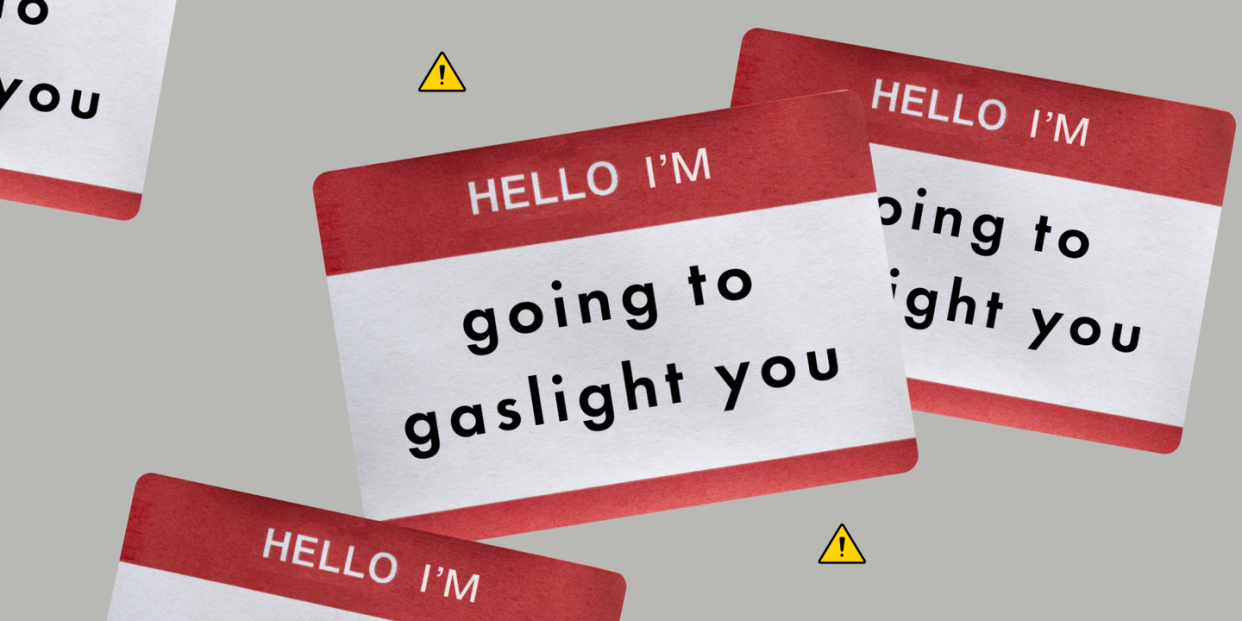
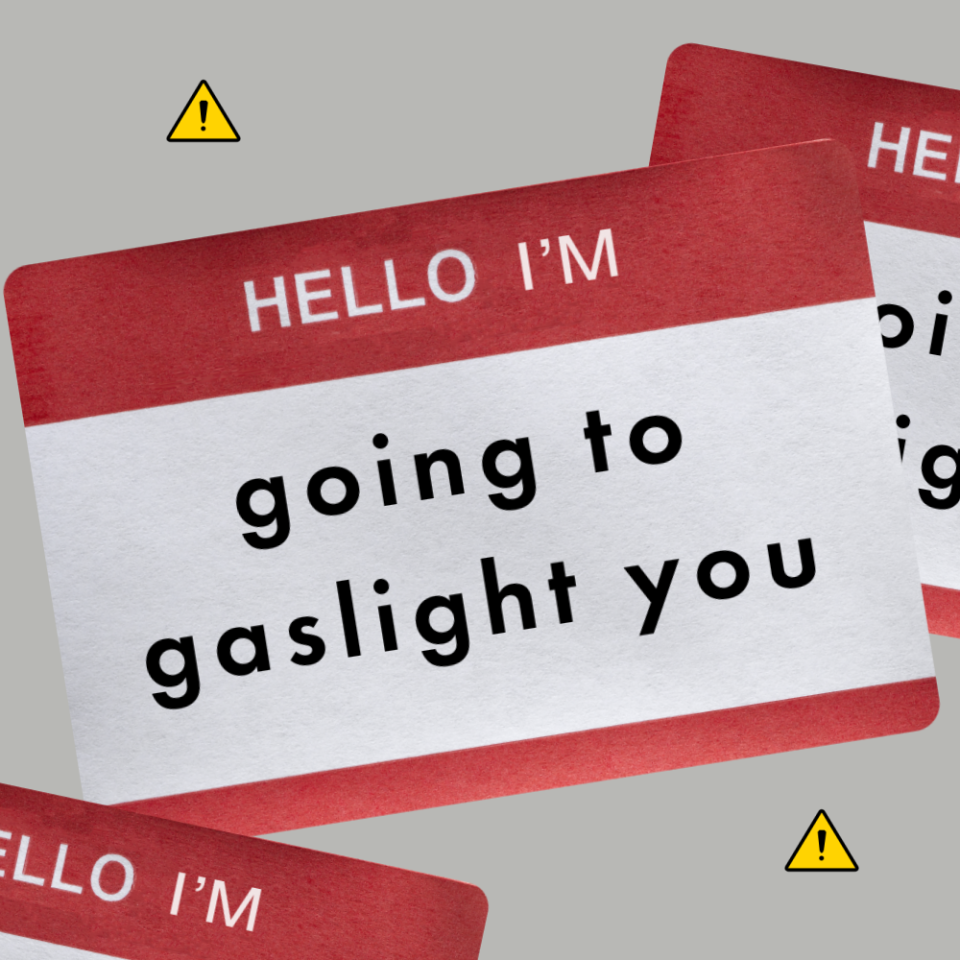
Most times, victims of gaslighting don’t even realise it's happening to them. That’s how insidious this form of psychological abuse can be and why it can be hard to spot. Gaslighting makes people feel anxious, confused and like they can’t trust their own version of events – this is what makes it a particularly ugly form of manipulation.
Conversations about this particular type of coercive form of control have gained momentum in a post-truth era, especially as many political leaders –Donald Trump, anyone? – have leaned heavily on their ability to subvert and bend truths and alter narratives to their own advantage.
Gaslighting has also been heavily explored on shows like Love Island and Married At First Sight Australia, after the public calling out of certain contestants for their manipulative behaviours. Reality TV contestants seem to have a habit of gaslighting others when things aren't going their way. And how could we forget high-profile cases of celebrities gaslighting partners, calling one another "crazy" and flat-out denying that certain testimonies weren't real, as in the case of Depp vs. Heard.
What is gaslighting?
Gaslighting was one of the most popular words of 2018, used prolifically across social media. But the psychological abuse is very serious and if left unexamined, can have damaging effects on those who experience it.
The latest data in the UK shows that the number of recorded coercive behaviour cases has gone up by nearly 50% last year, from 16,679 in 2019 to 24,856 in 2020. The rise in cases likely indicates the fact that people and institutions have become better at spotting victims of gaslighting. Although gaslighting can be really difficult to identify, as perpetrators tend to do it over a period of time with increasing severity, the signs are becoming more commonly known.
Victims may feel depressed, confused and anxious, and unable to identify where those feelings are coming from. Because abusers often trivialise those feelings, or tell their victims that they're simply imagining them, the impact can be devastating. Three women with experience of long-term gaslighting from ex-partners and friends tell us their stories.
What does gaslighting feel like?
“It started off, almost dreamlike and I was absolutely smitten with him,” says Ayesha*, a 23-year-old from London. In 2016 she met Mustafa* on Tinder, who was going through a divorce. He told her he regularly cheated on his wife, but only because his religious parents forced him to get married young. “I thought our relationship was super transparent because we were starting with a clean slate.”

But unfortunately for Ayesha, Mustafa was a serial cheater. She suspected it but there was never concrete ‘proof’ of his affairs. In the two-and-a-half year relationship, he’d openly flirt with other women in front of her and tell her inappropriate information about his past sexual encounters. But as soon as she’d voice discomfort, he’d convince her she was mentally unwell. “He’d be like: ‘You're being insane. You're being crazy. You're being ridiculous, man. I didn’t know you were so illogical, jealous and insecure.’” Mustafa was so convincing that Ayesha ended up going to therapy to work on her self-esteem because she thought she was the ‘crazy girlfriend’. It was only when a close friend came to her with proof of him cheating, that she was able to confront him and break off the relationship.
“I would say I had a strong gut instinct that something didn’t feel right, but I was so gaslit at the time, I didn’t even think I was being gaslit,” she says. “I definitely think this is going to take a long time to fully decompress. When you’re gaslit for so long, there’s no aspect of your life that isn’t affected by it. My recovery has come in bursts, but there are times when I get brain fog even thinking about the whole ordeal.”
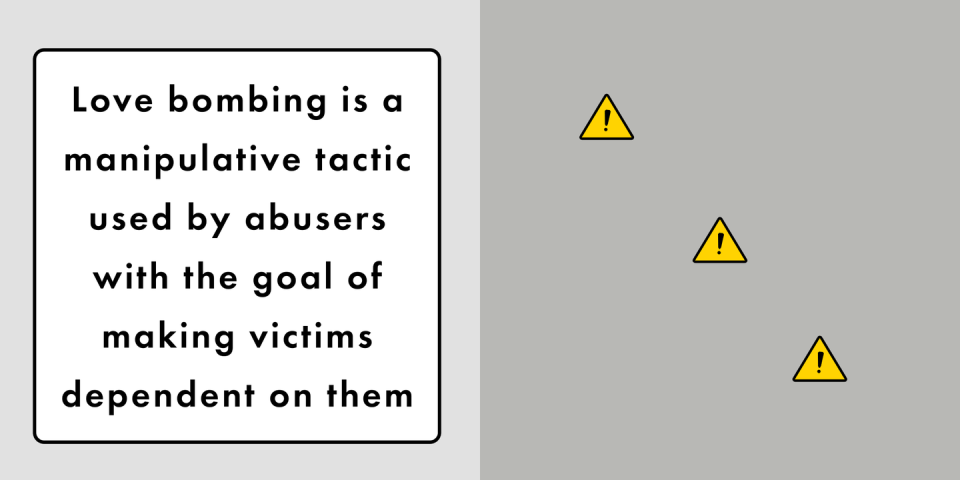
Similarly to Ayesha, Zarah* from Sussex was gaslit by her ex-partner. When Simeon* messaged the 30-year-old on Instagram, she didn’t think she’d be reporting him to the police for coercive control nine months later. “He followed me on social media for a month before messaging me and the abuse charities I've spoken to said he essentially sought me out, because it was a case of love bombing,” she says. Love bombing is a manipulative tactic used by abusers with the goal of making victims dependent on them. It’s normally characterised by excessive attention, admiration and affection. For Zarah it came in the form of letters and presents.
The first conflict arose when Simeon came to stay with her for a week, six weeks after their Instagram exchange. On the third night Zarah told him she was recently sexually abused, but that her self-esteem was solid. He then started hurling insults at her. “He said derogatory comments about my body, about my labia, I was in disbelief,” she explains. Zarah wanted to address the incident the day after, but Simeon began crying and victimising himself by blaming his panic attacks. “I thought maybe it was just a hiccup, but then everything we did together became governed by his anxiety.”
The conflicts didn’t stop there. Zarah’s ADHD means she struggles with long text message conversations, so when Simeon began arguments on WhatsApp, she’d ask to discuss the issues in person. Simeon would ignore her requests and instead send her paragraphs of mean texts. “Once I copied one of the messages out and it filled three Word documents. He’d say things like ‘Let’s just go over the last 24 hours, shall we? This is what happened.’”
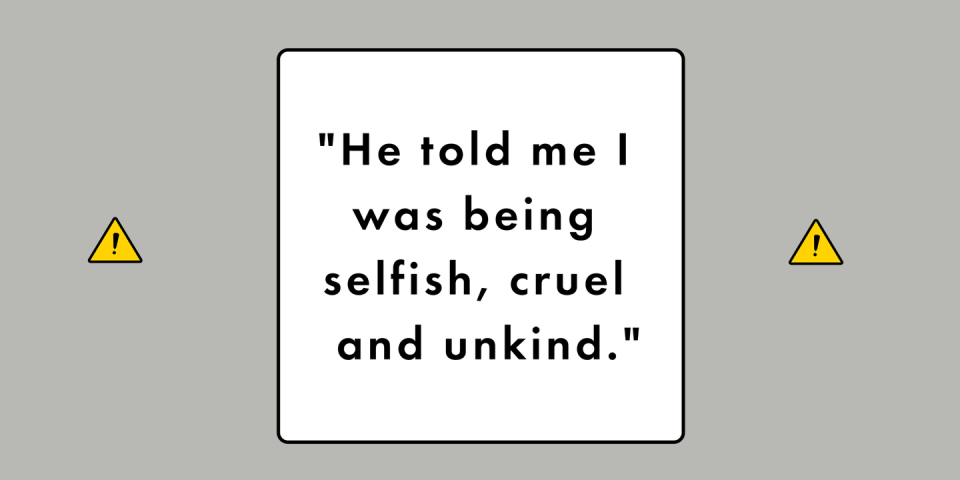
Towards the end of their relationship, Simeon sexually assaulted Zarah in her sleep. Not only was she traumatised by her previous experience of sexual assault, but now her consent had been completely violated by Simeon. “I told him: ‘It’s a big deal, you haven’t got my consent and you tried to have sex with me.’ He then told me I was being selfish, cruel and unkind. He just read off a list of insults.”
Zarah’s flatmates got concerned about his pattern of behaviour and told her to call Women’s Aid. “They said that it sounded like a coercive relationship, but because we don’t live together there’s not much that can be done. But if we did live together, it’d be a case of coercive control and I’d have grounds for putting in an injunction or something similar if it went to court.”
Luckily, there’s a great support system around Zarah right now. Her friends, housemates, father, a case-worker at a local domestic abuse charity, a psychiatrist and a trauma therapist are helping her recovery. “[Having all these people has] allowed me to move through this process and if just one of those elements was missing, I’d probably still be in the same dark place I was in January,” she concludes.
Though gaslighting is common in relationships, the emotional abuse can happen in friendships too. Rachel* is a 27-year-old animal researcher who was gaslit by a close friend when working together in an animal park abroad. “I was catatonically depressed, like not-getting-out-of-bed suicidal. It was terrible and it took a lot of time to bring myself out of that situation,” she tells me.
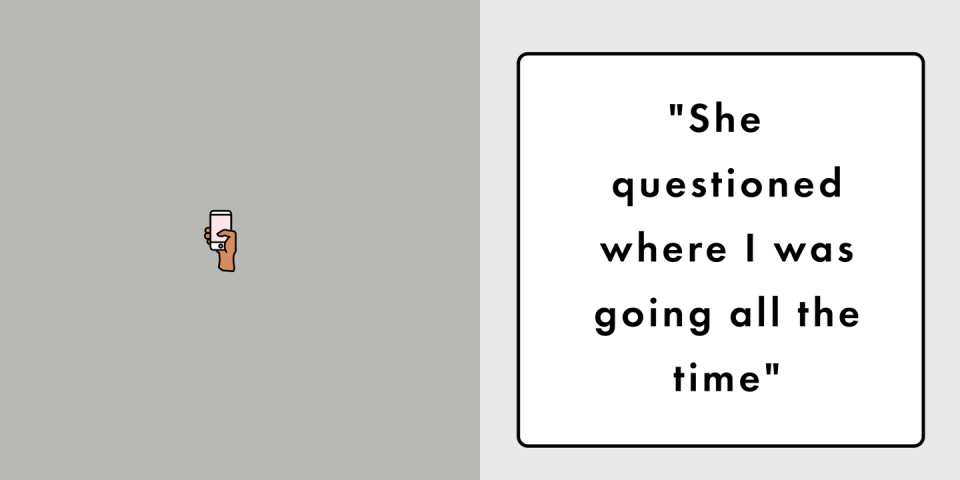
Rachel met Sarah* in 2016, when they were both volunteers and the two became close friends over time. Rachel also fell in love with another staff member, but they couldn’t date due to the workplace rules forbidding relationships between staff and volunteers. However when Rachel came back to the park as a staff member in 2020, she pursued the relationship. Only Sarah had a problem with it.
“She’d tell me that people were talking about me behind my back and eventually it got to the point where she convinced me I was going to get fired every single day,” Rachel continues. “She told people that he had HIV.” When other staff members pulled Sarah up on her behaviour, she’d say that she never said it or that her words were misconstrued.
“It was honestly insane. Sarah seemed very controlling of me, she questioned where I was going all the time, bearing in mind I was 26 when this all happened”, Rachel says. She was only able to recognise the emotional abuse because another friend, who also experienced gaslighting in the past, noticed the pattern of lies Sarah was feeding Rachel. The whole ordeal lasted nearly half a year before Rachel finally flew home to England. She’s now seeking therapy to deal with the aftermath.
Unfortunately gaslighting comes in many forms, making it even more crucial to understand the signs as it may be happening to us or someone we know.
*Names have been changed
If you need further help or advice visit Women's Aid or call The National Domestic Violence Helpline on 0808 2000 247.
You Might Also Like


